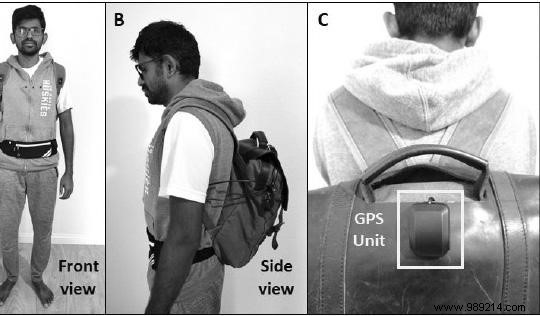Intel, the computer technology leader, has introduced an innovative AI-based assistance system for visually impaired individuals, featuring a stereoscopic camera integrated into a discreet backpack.
Imagine a future where visually impaired people navigate independently without canes or guide dogs. Researchers from Georgia State University, in partnership with Intel, have developed a portable guidance system designed to blend seamlessly into daily life.
The system leverages artificial intelligence and the Luxonis Oak-D camera, equipped with two lenses for stereoscopic vision to accurately gauge object distances and obstacles. A third 4K lens (3,840 x 2,160 pixels) enhances detail. Powered by a battery offering up to eight hours of autonomy, it ensures reliable performance.

The battery and camera are housed in a fanny pack or vest, while a computer in the backpack connects to the camera and GPS. Most processing occurs onboard the camera via an Intel Movidius Myriad X chip, utilizing deep neural networks to detect ground-level and aerial obstacles—including pedestrians, crosswalks, signs, branches, and building steps.
Guidance is provided through a Bluetooth headset linked to the computer, supporting voice commands. Users can request real-time environmental descriptions or recall details of previously visited locations.
The project is released under a free open-source license, inviting global developers to enhance it—such as integrating smartphones to eliminate the backpack or incorporating smart glasses.
“The technology exists; we are only limited by the imagination of the developer community," states Intel's press release from March 24, 2021. A demo video is available below.